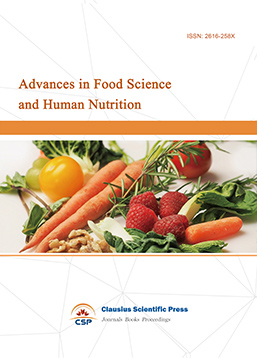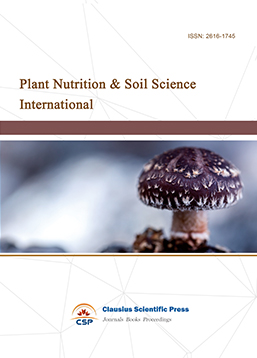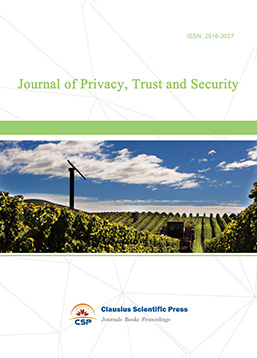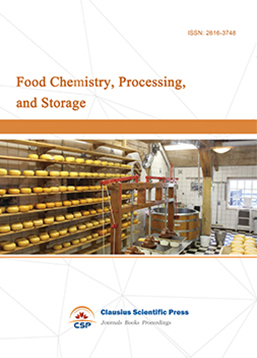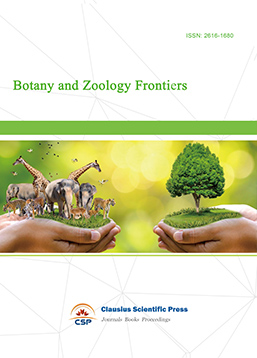Effects of Biochar on the Physicochemical Properties of Saline-Alkali Soil and the Growth and Metabolism of Melons
DOI: 10.23977/jmcs.2025.040102 | Downloads: 15 | Views: 1200
Author(s)
Miaohe Min 1, Nuo Xu 1, Wen Xue 1, Yijing Ma 1
Affiliation(s)
1 College of Geography and Environmental Sciences, Zhejiang Normal University, Jinhua, 321004, Zhejiang, China
Corresponding Author
Miaohe MinABSTRACT
To mitigate the adverse effects of soil salinization on melon growth, this experiment utilized two melon cultivars (Cucumis melo L. cv. Tokyo Sweet Treasure and Xizhou Honey No. 17) under three biochar treatments (0%, 10%, and 20% of pot soil mass) and three salt solution irrigations (0, 75, 150 mmol/L). Physiological changes in melons and soil physicochemical properties were investigated at 7, 14, and 21 days post-treatment. Results demonstrated that biochar addition alleviated salt stress-induced inhibition of plant growth and soil degradation. Biochar promoted plant height, root elongation, and antioxidant enzyme activities, with maximum increases of 15.7% (SOD), 29.9% (POD), and 37.5% (CAT). Malondialdehyde (MDA) content decreased initially (up to 44.32%) and later increased. Moreover, optimal biochar ratios enhanced photosynthetic efficiency and significantly increased soil organic matter, while N, P, and K levels showed slight but upward trends. In conclusion, appropriate biochar application improves saline-alkali soil properties, enhances melon growth, and strengthens salt tolerance.
KEYWORDS
Biochar; Saline-Alkali Soil; Melon; Soil Physicochemical Properties; Growth ParametersCITE THIS PAPER
Miaohe Min, Nuo Xu, Wen Xue, Yijing Ma, Effects of Biochar on the Physicochemical Properties of Saline-Alkali Soil and the Growth and Metabolism of Melons. Journal of Modern Crop Science (2025) Vol. 4: 9-14. DOI: http://dx.doi.org/10.23977/jmcs.2025.040102.
REFERENCES
[1] Samar, G. T., Dalia, Z. A., & Ahmad, M. A. (2021). Exploring natural diversity reveals alleles to enhance antioxidants system in barley under salt stress. Plant Physiology and Biochemistry, 166(2), 789–798.
[2] Kaya, M., Mujtaba, M., Bulut, E., et al. (2015). Fluctuation in physicochemical properties of chitin extracted from different body parts of honeybee. Carbohydrate Polymers, 132(15), 9–16.
[3] Awad, Y. M., Lee, S. E., Ahmed, M., et al. (2017). Biochar, a potential hydroponic growth substrate, enhances the nutritional status and growth of leafy vegetables. Journal of Cleaner Production, 156(10), 581–588.
[4] Yong, S. O., Scott, X. C., & Bin, G. (2015). Smart biochar technology—A shifting paradigm towards advanced materials and healthcare research. Environmental Technology and Innovation, 4(5), 206–209.
[5] Rizwan, M., Ali, S., Qayyum, M. F., et al. (2016). Mechanisms of biochar-mediated alleviation of toxicity of trace elements in plants: A critical review. Environmental Science and Pollution Research, 23(3), 2230–2248.
[6] Ye, X., Wang, H., Cao, X., et al. (2019). Transcriptome profiling of Puccinellia tenuiflora during seed germination under a long-term saline-alkali stress. BMC Genomics, 20(1), 589–591.
[7] Lashari, M. S., Liu, Y., Li, L., et al. (2013). Effects of amendment of biochar-manure compost in conjunction with pyroligneous solution on soil quality and wheat yield of a salt-stressed cropland from Central China Great Plain. Field Crops Research, 144(7), 113–118.
[8] Akhtar, S. S., Andersen, M. N., & Liu, F. (2015). Biochar mitigates salinity stress in potato. Journal of Agronomy and Crop Science, 201(14), 368–378.
[9] Kane, D. A., Bradford, M. A., & Fuller, E. (2021). Soil organic matter protects US maize yields and lowers crop insurance payouts under drought. Environmental Research Letters, 16(4), 044018.
[10] Cui, Q., Xia, J., Yang, H., et al. (2020). Biochar and effective microorganisms promote Sesbania cannabina growth and soil quality in the coastal saline-alkali soil of the Yellow River Delta, China. Science of the Total Environment, 756(7), 143801.
[11] Usman, A., Wabel, M. I., & Yong, S. O. (2016). Conocarpus biochar induces changes in soil nutrient availability and tomato growth under saline irrigation. Pedosphere, 26(1), 27–38.
[12] Ali, S., Rizwan, M., Qayyum, M. F., et al. (2017). Biochar soil amendment on alleviation of drought and salt stress in plants: A critical review. Environmental Science and Pollution Research, 24(14), 12700–12712.
| Downloads: | 780 |
|---|---|
| Visits: | 60438 |

 Download as PDF
Download as PDF